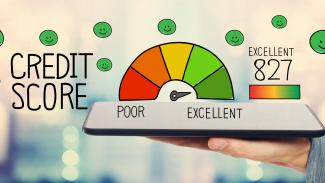
Understanding Your Credit Score: A Guide for High School and College Students
As a high school or college student, you might not think much about your credit score right now, but you’ll need to understand it soon. Your credit score can impact everything from getting a credit card to buying a car or even renting an apartment. In this guide, I'll break down what a credit score is, how it's calculated, and why it’s important to start thinking about it early.
What is a Credit Score?
Simply put, your credit score is a number that shows how good you are at managing money and paying back borrowed money. It’s used by banks, credit card companies, and even landlords to decide whether to lend you money or allow you to rent a place. A higher score means you’re more likely to get approved for things like loans or credit cards, and you’ll probably get better terms, like lower interest rates.
How is Your Credit Score Calculated?
Your credit score is based on five key factors. Each factor is weighted differently, meaning some affect your score more than others. Here’s what goes into your score:
- Payment History (35%)
- This is the most important factor. It looks at whether you’ve paid your bills on time. Late payments, missed payments, and defaults can hurt your score. Since you probably don’t have a ton of credit history yet, this might not be a huge factor for you—but it’s something to keep in mind if you open any accounts.
- Amounts Owed (30%)
- This shows how much you owe compared to your total available credit. For example, if you have a credit card with a $1,000 limit and you owe $800, that’s 80% of your available credit. Using too much of your available credit (called “credit utilization”) can lower your score. It's a good idea to keep your credit card balances below 30% of your limit.
- Length of Credit History (15%)
- The longer you’ve had credit, the better. This shows how experienced you are at managing money. If you're just starting to build credit, don’t worry too much about this—it just means that the more responsible you are with credit, the better your score will become over time.
- New Credit (10%)
- Every time you apply for credit, the company makes a “hard inquiry” on your credit report, which can cause a slight drop in your score. If you open a lot of new credit accounts in a short period, it can look like you’re taking on too much debt, which can lower your score.
- Types of Credit Used (10%)
- Having a mix of credit types—like credit cards, student loans, or auto loans—can boost your score. But don’t rush into opening different types of accounts just to boost your score. A few well-managed credit cards are usually enough to start with.
Why is Your Credit Score Important?
Even if you don’t plan to take out a loan right now, your credit score will matter in the future. Here’s why. When you apply for a credit card, car loan, or even a student loan, lenders will check your credit score to decide whether to approve you and your interest rates. A higher score means better chances of getting approved and lower interest rates. When you are ready to rent an apartment, many landlords check your credit scores before renting to you. A lower score might mean a higher security deposit, or in some cases, they may not rent to you at all. And finally, some employers check credit scores when hiring, especially if the job involves handling money or financial responsibility. A good score can help you stand out as a responsible candidate.
How to Start Building Good Credit
If you’re just starting to build credit, don’t worry—there are simple steps you can take:
- Start with a Student Credit Card
- If you're in college, look for credit cards designed for students. These cards often have lower credit limits, which makes it easier to manage your spending. Just make sure to pay off the balance in full each month to avoid interest.
- Pay Bills on Time
- The most important thing you can do for your credit score is to pay your bills on time. Set up reminders on your phone or automatic payments to make sure you never miss a payment.
- Keep Your Credit Utilization Low
- Don’t use all your available credit. A good rule is to keep your credit card balance below 30% of your limit. For example, if your credit card limit is $1,000, try to keep your balance below $300.
- Avoid Opening Too Many Accounts
- Every time you apply for credit, it shows up as an inquiry on your credit report. Too many inquiries in a short period can hurt your score. Only apply for credit when you really need it.
- Check Your Credit Report
- Errors on your credit report can hurt your score. You’re entitled to a free report from each of the three major credit bureaus once a year, so take advantage of that.
Conclusion
Your credit score might not seem important now, but it will play a big role in your financial future. By understanding how it works and taking steps to build good credit early, you’ll be setting yourself up for success when it’s time to borrow money, buy a car, or rent your first apartment.
Start small, be responsible, and your credit score will grow, giving you access to better financial opportunities as you get older.

